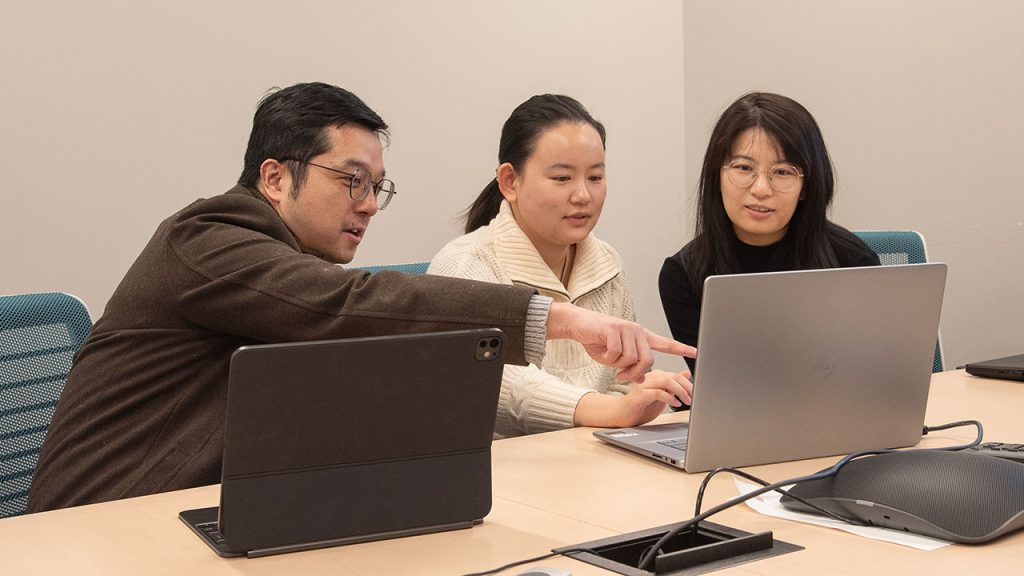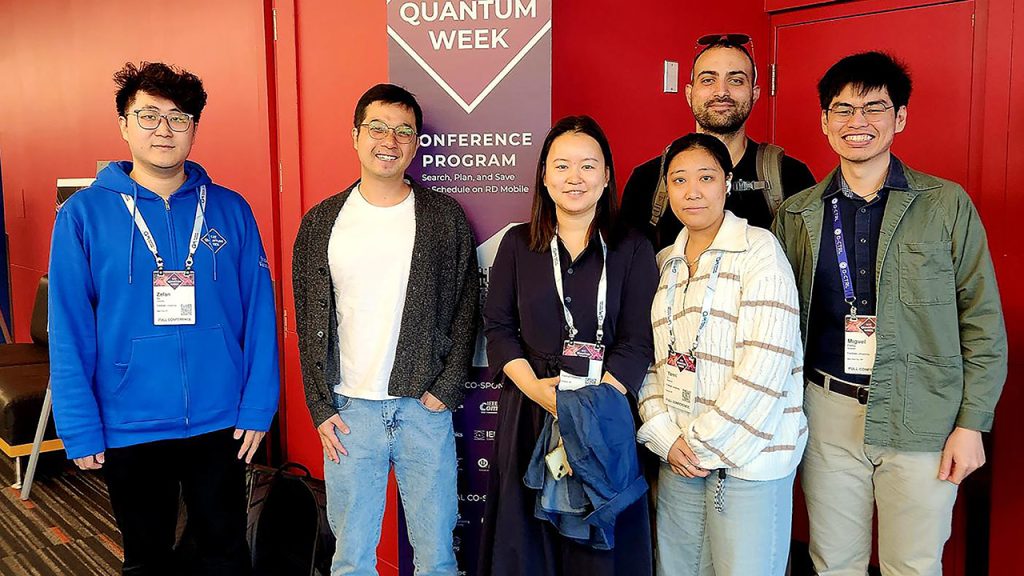A Fordham student team has developed a technique that could make quantum computing an everyday tool for solving business problems and tackling some of society’s toughest challenges—and they’re busy promoting it to potential business partners through a National Science Foundation program they began in January.
Quantum computers can handle a vastly greater number of computations at once in a fraction of the time. They are elaborate and expensive, and typically only big corporations have them.
Quantum Computing for Sustainability
But the team of computer science graduate students came up with an algorithm for distributing large quantum computations across multiple smaller machines—quantum computers as well as traditional computers—that each handle a piece of the problem.
Collectively, they achieve the same result as the bigger computer while using a bare fraction of the resources and open the door to quantum computing that requires far less energy. The team authored two academic papers last year describing the algorithm, which could expand public access to quantum computing beyond the corporations that can now afford the necessary technology.
Quantum computers hold “immense” potential for addressing society’s problems—for instance, providing much more precise models of climate change by harnessing an exponentially greater amount of data, said Ying Mao, Ph.D., the computer science professor who mentored the students’ research. They could also slash the amount of energy needed for the burgeoning growth of data centers and the power-hungry process of artificial intelligence, he said.
But for now, the larger-scale quantum computers that could bring such benefits are in their infancy. They are not only costly but also require lots of power to correct errors and cool the components to extreme temperatures, Mao said.
How Do Quantum Computers Work?
Quantum computers are an entirely new kind of computer: Unlike the ones we use every day, which read data in tiny streams of bits and bytes, they’re set up to harness the quantum states of electrons, which can exist in multiple places simultaneously. That means quantum computers can handle far more computing tasks at the same time, compared with current computers, and potentially save energy as well.
Making Quantum Computing More Accessible
The students published an earlier version of their algorithm in May, and a more advanced version they announced in December is undergoing peer review. When implemented, it would allow a large quantum computing problem to be run from a computer “anywhere in the world,” as long as it’s connected to other machines online, Kan said. “I think it will help to democratize the distribution of [quantum] computing,” she said.
The NSF program provides the students with entrepreneurship training as well as interviews with potential customers for their invention. And the students are finding strong interest in the potentially game-changing technology. “There is a promising future” in business applications for quantum computing, said doctoral student Shuwen Kan, the lead researcher. “People are trying to commercialize it in all aspects, in all industries.”
She and her fellow students have talked to people who work in finance, technology, and the biomedical field, as well as someone from one of the ride-sharing companies, about how they might use the new algorithm.
‘A ChatGPT Moment’
Kan and four fellow students—Zefan Du, Yanni Li, Yin Su, and Luisa Rosa—are taking part in the NSF program, calling their team Ascend Quantum. They eventually plan to offer the basic algorithm for free online, and they’re working with the Fordham Foundry to develop a business that will adapt the algorithm to particular companies’ needs.
Kan likened the current state of quantum computing to that of artificial intelligence before ChatGPT showed people how it could affect everyday life.
“People in the quantum community believe there will be a ‘ChatGPT moment’ for quantum,” she said.


